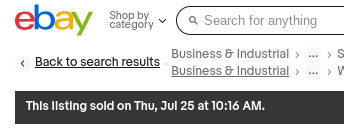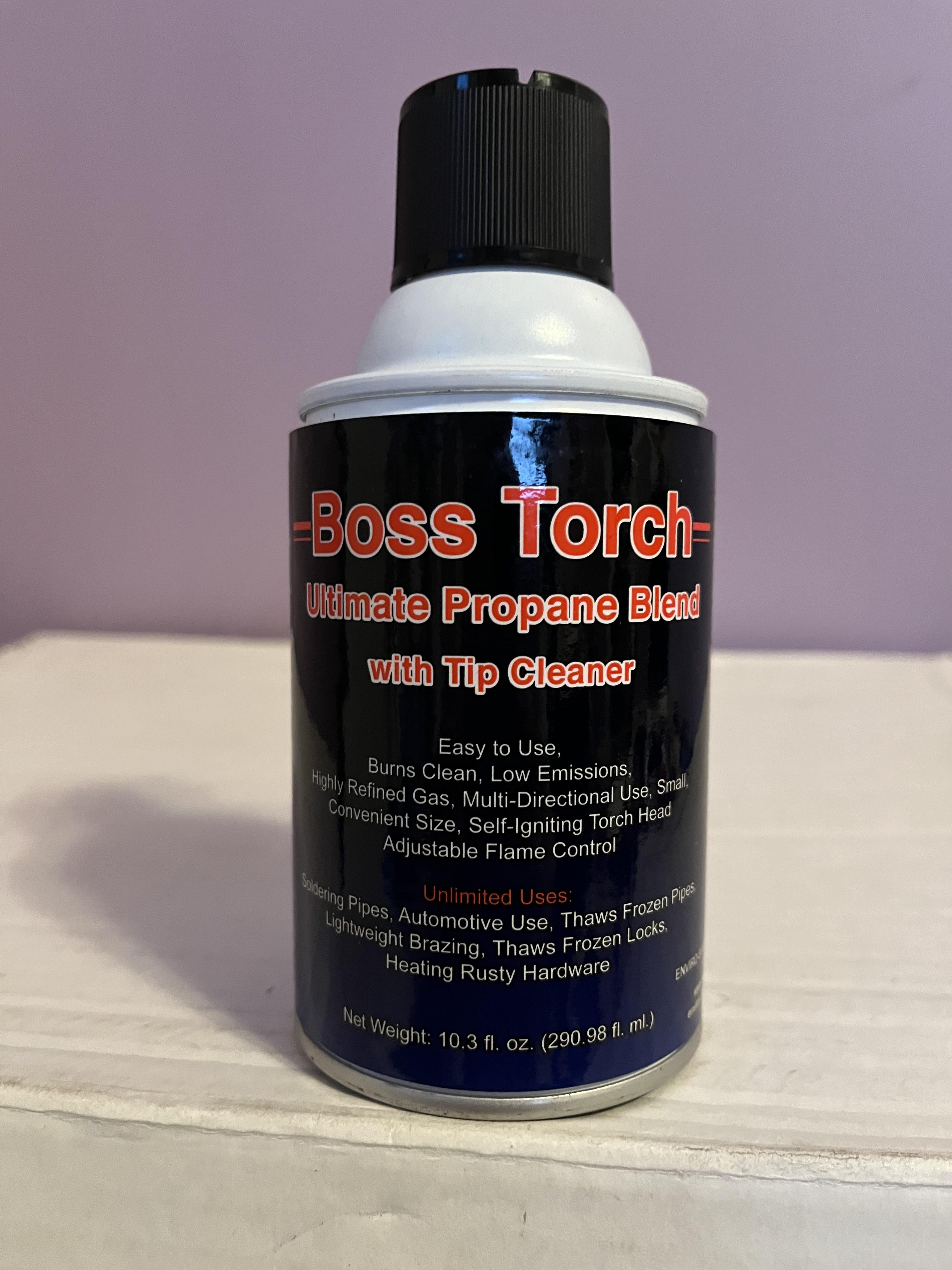Topic
Compact/light weight propane canisters
Forum Posting
A Membership is required to post in the forums. Login or become a member to post in the member forums!
Home › Forums › Gear Forums › Gear (General) › Compact/light weight propane canisters
- This topic has 126 replies, 17 voices, and was last updated 6 months, 1 week ago by
 Bill Budney.
Bill Budney.
-
AuthorPosts
-
Nov 18, 2020 at 8:00 pm #3684766
n-butane
Propane has a lower boiling point than butane at -42°C vs -0.4°C. Propane also has about 4x the vapour pressure of butane. This makes propane a better choice for cold climates whilst butane is a better choice for propellant use.
The big differences between butane vs propane are in the usable temperature range and the vapour pressure inside of the gas bottle. Propane can be used instead of butane in all fuel applications. Butane does not work as a fuel in a below freezing climate but butane is generally a better propellant, versus propane, due to its lower vapour pressure.
In other ways butane and propane are almost or exactly the same, such as energy content and many of their applications.
Discover the real difference between butane vs propane vs isobutane vs LPG. All three gases are consider to be LPG – Liquefied Petroleum Gas.
Does Propane or Butane Have a Higher Boiling Point
Butane has a higher boiling point than propane. Propane has a lower boiling point than butane at -42°C vs -0.4°C. Butane does not work as a fuel in a below freezing climate but butane has a slightly higher energy content by volume. Butane is generally a better propellant, versus propane, due to its lower vapour pressure.Nov 18, 2020 at 8:02 pm #3684768Butane vs Propane – Choosing Butane or Propane Gas
Propane is better for cold weather with a lower boiling point, at -42°C vs -0.4°C for butane. Butane is the preferred propellant, with a lower vapour pressure at a given temperature, being about ¼ that of propane.
When considering butane or propane gas, the difference in physical properties determines which gas is best for a particular application.
Propane is classified as LPG – Liquefied Petroleum Gas – along with butane, isobutane and mixtures of these gases. Propane boiling point is lower than butane so it will continue to vaporise from a liquid to a gas even in very cold weather, down to -42°C. When stored as propane liquid in a cylinder or tank, it has 4x higher pressure than butane at the same temperatures. This make propane more appropriate for exterior storage and use in cold climates.
As with normal butane, isobutane is a flammable hydrocarbon gas that is liquefied through pressurisation. Propane is classified as LPG – Liquefied Petroleum Gas – along with butane, isobutane and mixtures of these gases.
Butane vs propane are dissimilar in boiling point and vapour pressure but both are regarded as LPG and commonly used for cooking, heating, hot water and autogas.
The lower boiling point of propane is advantageous, as it will continue to vaporise – turn to gas – even in colder climates down to -42°C.
The lower vapour pressure of butane, at a given temperature, is advantageous for some propellant applications.
Butane has a slightly higher energy content by volume while propane energy content is slightly higher by weight. This seeming inconsistency is as a result of the two liquefied gases having a different specific gravity.Nov 18, 2020 at 8:02 pm #3684769Butane vs LPG
When you want to go camping or just barbecuing in cold weather, propane is better than butane as your cooking and heating fuel. Propane keeps working in cold weather, when butane doesn’t. Butane is appropriate for outdoor warm weather or indoor use only.
Both are used for home heating and cooking, as well as to fuel vehicles. Propane has a lower boiling point than butane so will continue to vaporise from liquid to gas even in cold conditions down to -42°C. Stored as liquid at like temperatures, propane has 4 times greater pressure than butane.
When comparing butane vs LPG, the difference in boiling point is the key difference. -0.4°C is the boiling point for butane vs LPG with a boiling point of -42°C. The boiling point of isobutane at -11.75°C (10.85°F). This means propane keeps working in cold weather.
LPG (propane) boiling point is lower than butane meaning it will continue to vaporise from a liquid to a gas, even in very cold weather of -42°C vs -0.4°C for butane. So, propane is better for use in the cold. Butane vapour pressure is ¼ the pressure of LPG (propane), at a given temperature, making it more popular for propellant use.
Butane and LPG (propane) are used for cooking, heating and to fuel vehicles.
Both propane and butane are classified as LPG – Liquefied Petroleum Gas.
Butane vs LPG (propane), the significant differences are different boiling points and vapour pressure.
LPG (propane) boils at -42°C vs -0.4°C for butane. The boiling point of isobutane at -11.75°C (10.85°F).
LPG (propane) vapour pressure is about 4x that of butane, at a given pressure.
This makes LPG better for cold weather climates but butane is a much better propellant.
Both are regarded as LPG – Liquefied Petroleum Gas – and commonly used for cooking, heating, hot water and auto fuel.
Butane vs LPG is better restated as “butane is LPG”. Butane vs LPG is more accurately stated as butane vs propane.
LPG describes a group of gases that includes butane, as well as propane and isobutane.
Other gases that also fall under the “LPG” label, including ethane, ethylene, propylene, butylene and isobutylene, as well as mixtures of these gases and are also referred to as natural gas liquids – NGL.Nov 18, 2020 at 8:04 pm #3684770What is Butane (n-butane)? Is Butane a Gas? n Butane vs Butane (Butane vs n Butane)
n Butane vs Butane is referring to exactly the same gas. In scientific nomenclature, “butane” refers to the n-butane isomer of butane vs the isobutane isomer. Both have 4 carbon and 10 hydrogen atoms but butane is in an unbranched structure whilst isobutane is branched.
Butane is a flammable hydrocarbon gas that is liquefied through pressurisation. Butane (n-butane) is also falls under the category of “LPG”. Butane is commonly used as a fuel, propellant and refrigerant, as well as a petrochemical feedstock. Butane is supplied to businesses that require Butane, as opposed to propane.
Butane is an organic hydrocarbon and a four carbon atom alkane that is a gas at normal temperature and pressure. Butane may be used to refer to either of two structural isomers, n-butane or isobutane (methylpropane), or mixtures of the two isomers.Butane is a gas when not under pressure and at normal room temperatures. It is classified as LPG, along with propane, isobutane and mixtures of these gases.
Butane (n-butane) comes from natural gas processing and oil refining.
The chemical formula for Butane is C4H10. (Butane molecule model shown)
Butane has some specific applications where it has advantages over propane.
Is Butane Corrosive – Toxicity – Colour – Odour – Flammability
Butane is not corrosive. Butane (C4H10) is an very stable molecule which has no corrosive action toward metals. Butane also has low toxicity. In addition to being non-corrosive and non-toxic, butane and its isomer, isobutane, are also extremely flammable, colourless and odourless (prior to addition of an odourant). Butane is an asphyxiant, if it replaces air in an enclosed space.
n-Butane or n Butane
Both n-Butane or n Butane are just other names for regular butane.What is Isobutane?
Isobutane (i-butane) is an isomer of butane. As with normal butane, isobutane is a flammable hydrocarbon gas that is liquefied through pressurisation.
Isobutane is converted from butane in an isobutane production process called isomerization.
It is classified as LPG, along with propane, butane and mixes of these gases.
So, it has the same chemical formula as butane — C4H10 — but has a different arrangement of its atoms, as you can see in the 3-D model images. (Isobutane molecule model shown)
It also has different physical properties from normal butane (n-butane).
In addition to being used as a fuel, isobutane is commonly used as a refrigerant and a propellant.
Isobutane has very low global warming potential and insignificant ozone depletion potential.
However, its main use is in refineries to increase octane of gasoline and make it cleaner burning.
Isobutane vs Propane – Is Isobutane the Same as Propane?
A major difference between isobutane vs propane vs butane is the vapour pressure at a given temperature. Vapour pressure is the force at which the gas pushes against the cylinder walls. Propane also has about 4x the vapour pressure of butane. Isobutane vaporises at -11.75°C (10.85°F) vs propane at -42°C and butane at -0.4°C.
Considering isobutane vs propane, 310.9 kPa is the vapour pressure of isobutane vs propane at 858.7 kPa (both at 21ºC) . The -11.75°C is the boiling point of isobutane vs propane at -42°C. Both are liquids below boiling point or when under pressure. So, propane also has a lower boiling point and higher vapour pressure.
Isobutane vs propane is also a comparison of different chemicals. The C4H10 is the chemical formula of isobutane vs propane with a chemical formula of C3H8.Nov 18, 2020 at 8:04 pm #3684771A bit repetetive there Dan. What gives?
Nov 18, 2020 at 8:09 pm #3684772Energy Content – Myths & Facts
I’ve seen any number of articles saying that butane has more energy content and is, therefore, more economical to use.Not always true!
It actually depends on the unit of measure used for pricing.
If it is priced by volume — in litres — the butane has about 9% more energy content, with 27.5MJ/L versus 25.3 MJ/L for propane.
However, if it is sold by weight — in kilograms — then propane has about 5% more energy content, with 49.58MJ/kg versus 47.39 MJ/kg for butane.
Why?
Because propane has less density, you get more litres per kilogram, with the difference more than offsetting the lower MJ/L energy content value.
Butane vs Propane Gas – Which is Hotter?
The flame temperatures of butane and propane are virtually identical. Butane burns at 1970°C or 3578°F. Propane burns at 1967°C or 3573°F.Nov 18, 2020 at 8:12 pm #3684774Boiling Point: Turning from Liquid to Gas
Propane and butane have different boiling points — the temperature at which it goes from liquid to gas (vapour).Propane boils at -42°C whereas n butane boils at -0.4°C. The boiling point of isobutane at -11.75°C (10.85°F).
This means you have a huge problem if you try to use pure butane when the temperature drops below freezing.
No Boiling = No Vapourisation = No Gas
So, with butane only, you could find yourself with no gas for your heater and cooking appliances when it gets cold.
In some areas, LPG suppliers provide a mixture of propane and butane to address this problem.
This can work well when there are temperatures both below and above freezing.
However, the mixture in the cylinder can become butane rich if there is too much cold weather, with only the propane vapourising and being used.
Needless to say, propane is the preferred choice for cold weather climates.
What is Butane Commonly Used for?
The most common use of butane is as a heating fuel.It can be used for cooking, hot water and space heating.
It is also frequently blended into autogas, to fuel vehicles.
There are also commercial and agricultural applications, including the heating of greenhouses.
In non-fuel applications, butane is also commonly used as a propellant in aerosol products and as a refrigerant.
Can You Use Propane Instead of Butane
You can use propane instead of butane in virtually all fuel applications. It is the non-fuel applications, for propellants and refrigerants, where propane cannot be used instead of butane.Nov 18, 2020 at 8:20 pm #3684776What would happen if a full can of off the shelf propane-butane mix were to be used in -20F to -30F without a Moulder Strip, would it light?
A new 30/70 canister should work down to about -24 C. That is approximate, because the calculations are done for n-butane, not a mix of n and iso butane. So you would be marginal.Cheers
It’s relative to our discusion
Jul 24, 2024 at 8:57 pm #3815394I’ve been waiting for an update on the Boss Propane Torch fuel canisters. What’s the latest. Anyone using them with the new improved BRS3000t that Roger is using on his new winter stove?
Jul 24, 2024 at 11:33 pm #3815400I tried to buy Boss propane recently — several orders were canceled. It appears that they are no longer available (in USA). At least, I don’t know where to buy them anymore.
Jul 24, 2024 at 11:53 pm #3815401I tried to buy a few, but all I got was ‘out of stock’ with no suggestion of repeats.
The Boss web site does not list them any more afaics.Cheers
Jul 25, 2024 at 10:09 am #3815415Purchase the torch, get 1 can of fuel that has the lindal valve :-)
Refill with propane. Use caution as usual when refilling.
Jul 25, 2024 at 2:05 pm #3815418Alright…….2 sold in last 24 hours. Yousa guys are paying attention:-)
Jul 25, 2024 at 2:38 pm #3815421Not exactly… I ordered one, but the order was canceled. Reason, “out of stock”. Pretty much like all of my other orders.
Not sure what is going on with these Boss Propane canisters. I suspect there is more to the story, but I don’t know what.
It is possible that there may be stock in some store somewhere, but I don’t know how to find it.
Jul 25, 2024 at 3:22 pm #3815424I post the link at 10:09 AM
It sold at:
 Jul 25, 2024 at 3:38 pm #3815425
Jul 25, 2024 at 3:38 pm #3815425Yes, but no.
That was me. I saw your post and bought immediately.
The order was quickly cancelled (by the seller).
As said, this is similar to other orders I have placed for Boss propane in the past month or so. All sources that I have been able to find have dried up. Mysteriously, as far as I can see.
Jul 25, 2024 at 3:40 pm #3815426Did they give a reason why it was cancelled?

.
Jul 25, 2024 at 4:07 pm #3815427That’s interesting
If you connect a regulator stove to propane, it has too high a pressure so the valve never opens. When at room temp.
At somewhere near freezing, the pressure is less so the regulator stove works
Jul 25, 2024 at 4:14 pm #3815428Did they give a reason why it was cancelled?
“I’m out of stock or the item is damaged.”
As I said, this is the same pattern as several orders I have placed in the past month or so. The reason that I don’t believe it is that I have NEVER experienced immediate cancellation of ANY order (with the same “reason”).
For the exact same pattern to reoccur half a dozen times (from different sellers) seems extremely unlikely to be random chance.
Jul 25, 2024 at 6:15 pm #3815440Wow, the backpackers over on Whiteblaze.com must have purchased them by the dozen back in the day before COVID-19. I sold 179 over there. I sold dozens here on BPL.
Jul 25, 2024 at 7:01 pm #3815442I have to emphasise that I DO NOT KNOW,
but I wonder whether the problem could be that the Boss canisters never went through certified testing and so did not get DoT approval? This may of course have been due to corporate oversight or ignorance.I DO NOT KNOW. I just speculate.
Cheers
Jul 25, 2024 at 7:20 pm #3815444There is an official MSDS on them posted here in a thread somewhere.
Jul 25, 2024 at 7:28 pm #3815445“I’m out of stock or the item is damaged.”
They were negligent in monitoring their sales page or it was an intentional “ClickBait” add…… maybe!!! ;)
Jul 25, 2024 at 8:02 pm #3815447I’ve been using the Boss Torch propane canisters with the new BRS3000T for several years with no problems. I generally run with the Soto Windmaster on the Boss Torch canisters these days because it is such a superior stove. I still have that case of Boss Torch canisters I bought a few years ago, in the box they were shipped to me in, with 10 new & unused. I still owe a couple to Eugene Hollingsworth! Unfortunate that EnviroSafe isn’t selling them anymore.
 Jul 25, 2024 at 8:34 pm #3815449
Jul 25, 2024 at 8:34 pm #3815449I have a case of 10 in my garage somewhere. I’ll look tomorrow.
-
AuthorPosts
- You must be logged in to reply to this topic.
Forum Posting
A Membership is required to post in the forums. Login or become a member to post in the member forums!
Our Community Posts are Moderated
Backpacking Light community posts are moderated and here to foster helpful and positive discussions about lightweight backpacking. Please be mindful of our values and boundaries and review our Community Guidelines prior to posting.
Get the Newsletter
Gear Research & Discovery Tools
- Browse our curated Gear Shop
- See the latest Gear Deals and Sales
- Our Recommendations
- Search for Gear on Sale with the Gear Finder
- Used Gear Swap
- Member Gear Reviews and BPL Gear Review Articles
- Browse by Gear Type or Brand.






